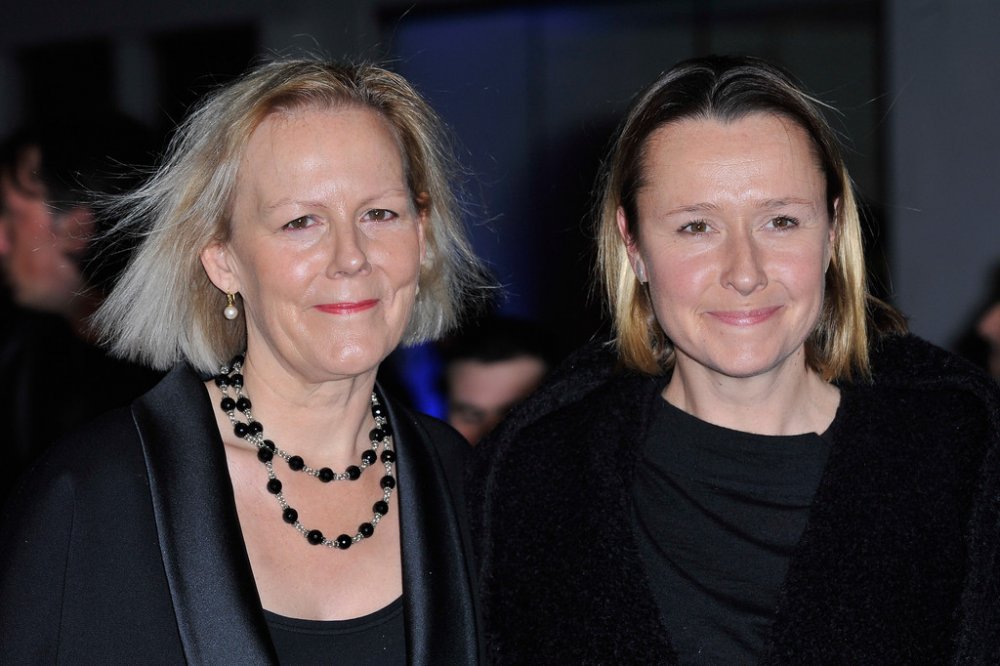
Phyllida Lloyd (left) attends the premiere of The Iron Lady (2011) at BFI Southbank.
Employing more women in writing and directing roles makes sound business sense for the film industry, according to new research from the BFI. Analysis of the performance of UK films between 2010-2012 shows that a high percentage of the most successful and profitable independent British films had a female screenwriter and/or director attached.
Women are under represented in writing and directing roles in the film industry. For all UK independent films released between 2010 and 2012, just 11.4% of the directors and 16.1% of the writers were women. However, for the top 20 UK independent films over the same period, 18.2% of the directors and 37% of the writers were female. And for profitable UK independent films, 30% of the writers were female.
The Rt Hon Maria Miller, Culture Secretary and Minister for Women and Equalities comments:
This is encouraging news and highlights the skill and talent of women working in the film industry today whose work both excites and inspires audiences. The creative industries underpin this country’s economic growth and are increasingly front and centre in representing Britain on the world stage. Of course, there is still a long way to go to address under-representation across the sector in general but with the number of women being employed within the creative industries growing year by year I know we can look forward to a future for film where the talent of women can shine.
Amanda Nevill, CEO of the BFI comments:
Women are creating stories and characters that resonate with audiences in the UK and around the world, and it’s encouraging, and absolutely no surprise, to see films from women writers in particular really making an impact. Frustratingly, overall the numbers of women in writing and directing roles remains low and there is still much work to do to ensure female voices can come through. It is pleasing to see that investment through BFI Lottery funding and also our partners at BBC Films and Film4 plays an important role in championing women, supporting them to develop and consolidate their writing and directing careers and long may this continue.
Successful women writers and directors working in the UK independent sector over the period included Jane Goldman (The Woman in Black and Kick-Ass), Phyllida Lloyd and Abi Morgan (The Iron Lady), Debbie Isitt (Nativity 2), and Dania Pasquini and Jame English (StreetDance 3D and StreetDance 2 3D).
A number of women also saw success on UK films which were financed by major studios in the US, including Sarah Smith (Arthur Christmas), Susanna White and Emma Thompson (Nanny McPhee and the Big Bang), Jane Goldman (X-Men: First Class) and Lone Scherfig (One Day).
A key feature of the research is the number of successful female writers and directors attached to more than one project over the period, with many of the directors also having directing credits in other dramatic media including television and theatre. This indicates the development of a critical mass of women with consolidated writing and directing careers, developed through film and also television and theatre, and on-going relationships with producers and funders of films. The same factors are shown by research to be present in the careers of successful male screenwriters and directors.
The report also shows that films with female writers or directors were more likely to have female producers or executive producers, and have received financial support through BFI Lottery and BBC Films or Film4.
Today’s announcement comes hot on the heels of Creative Skillset’s 2012 Employment Census 2012, which showed that employment of women in the creative media industries has grown by almost 16,000 since 2009, with representation rising from 27% to 36% of the total workforce. This reverses the previous decline seen between 2006 and 2009, where the representation of women in the workforce reduced from 38% to 27%. Within that total, representation within film and TV is actually higher than the average across the wider creative media industries. In 2012 women made up 46% of the total film workforce (not including freelancers).
Read the full report, Succès de plume? Female Screenwriters and Directors of UK Films, 2010-2012.



